With support from the NIH, Assistant Professor Quanyin Hu uses a two-step system to attack triple-negative breast cancer.


With support from the NIH, Assistant Professor Quanyin Hu uses a two-step system to attack triple-negative breast cancer.

With V Foundation funding, Assistant Professor Quanyin Hu aims to improve a cancer-killing hydrogel to improve outcomes for pediatric GBM patients.
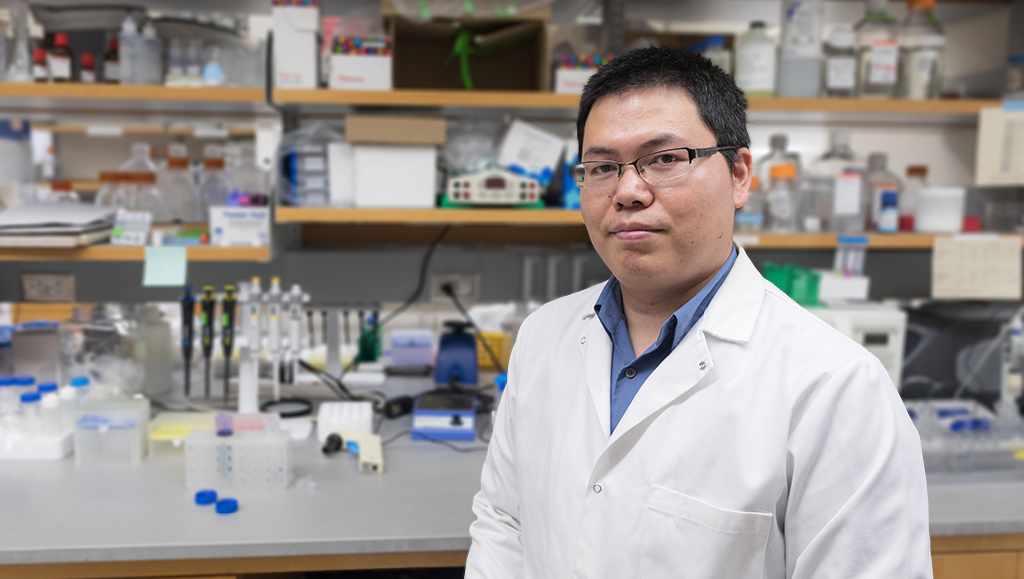
A cutting-edge platform developed by Assistant Professor Quanyin Hu uses protein-degrading platelets to suppress tumor regrowth and bolster immune response after surgery.
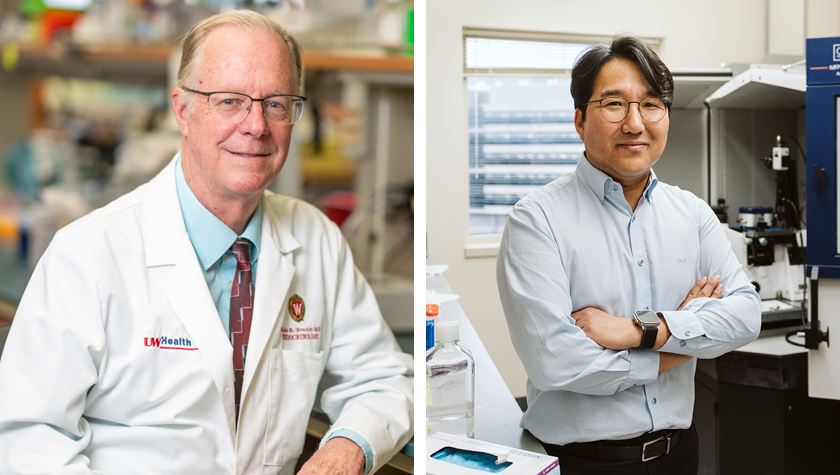
University of Wisconsin–Madison scientists are poised to gain a better understanding of how to treat a progressive scarring disease of the lungs that kills an estimated 40,000 people every year in the United States.
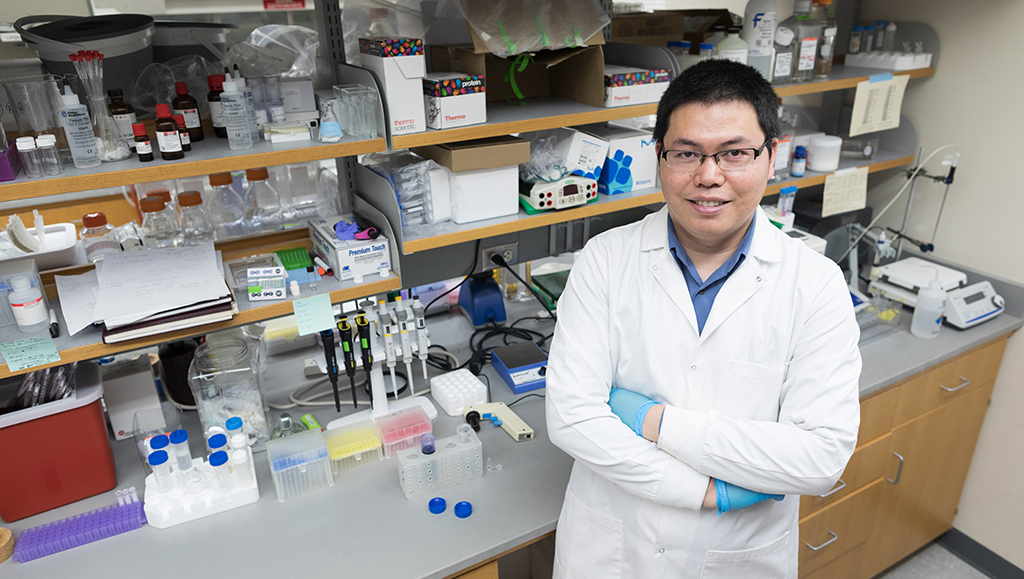
Employing bacteria to infiltrate that cancerous fortification and deliver drugs could aid treatment for pancreatic cancer, according to newly published findings from a team of University of Wisconsin–Madison researchers.
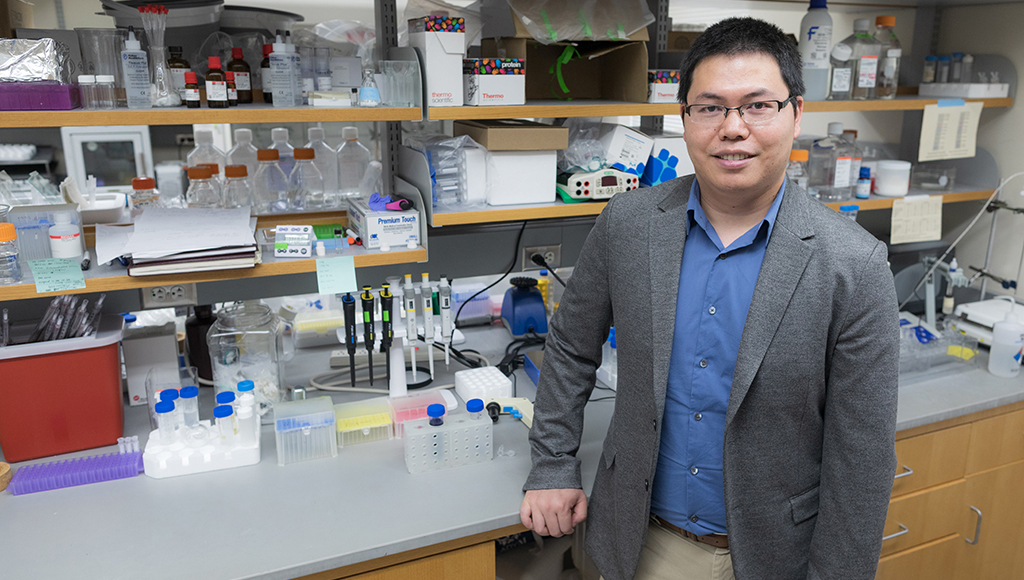
A competitive Vilas Associates award recognizes Assistant Professor Quanyin Hu’s innovations in cell therapy research and fuels more development.

In the 2020–21 Fiscal Year, School of Pharmacy researchers received six patents to improve drug delivery and discovery.
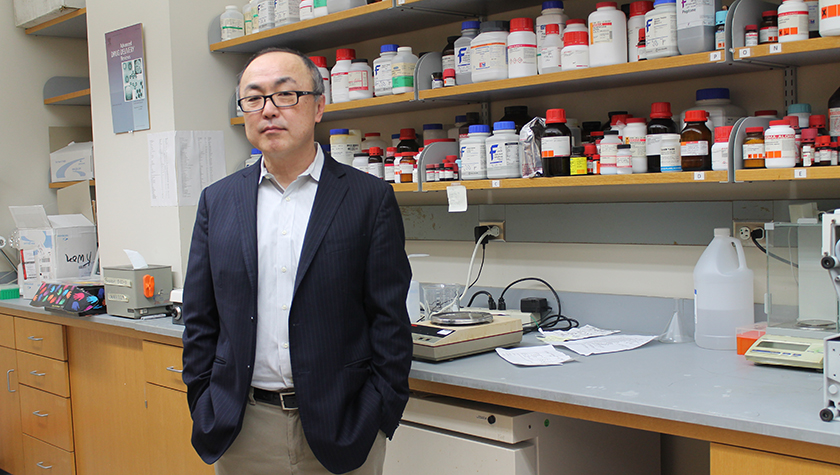
Professor Glen Kwon receives a new grant from the National Institutes of Health for research targeting triple-negative breast cancer.
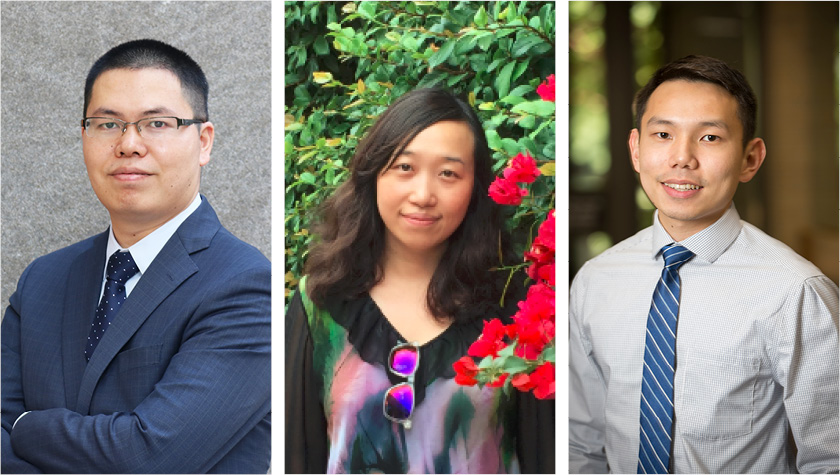
New faculty members strengthen the School of Pharmacy’s research and education in pediatric pharmacy, drug delivery, and precision medicine.
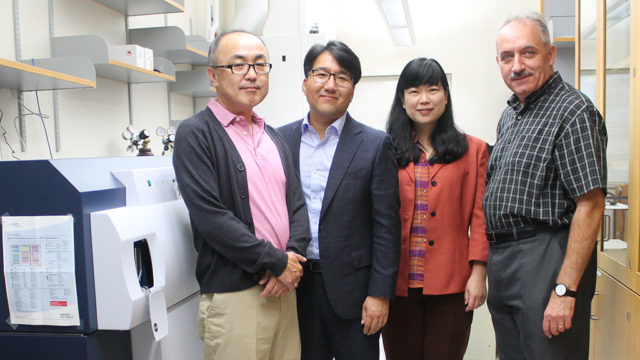
Professors Seungpyo Hong, Sandro Mecozzi, Lingjun Li and Glen Kwon are combining their expertise to create a new research center that will improve the efficacy of new drug leads.